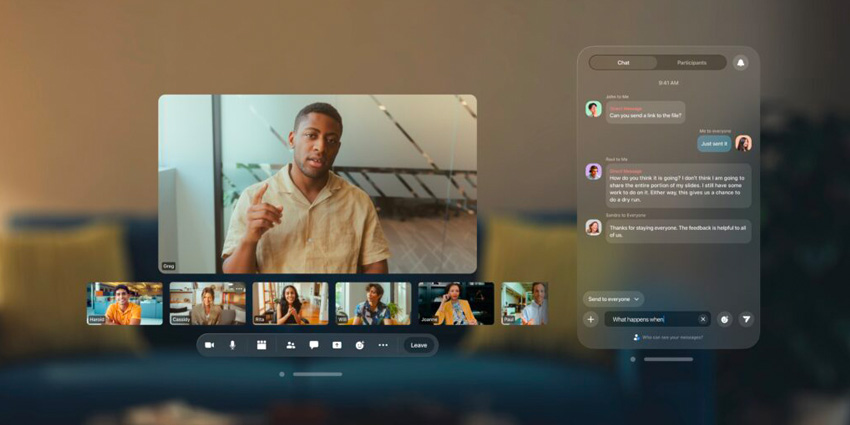This week, AR instructional solutions provider Taqtile announced official support for Microsoft’s Unity-based Mixed Reality Toolkit 3 (MRTK3) in a move to broaden the usability of its Manifest application ready for a “growing number” of OpenXR devices in 2024.
The firm also states that as several new headsets are emerging on the market this year, from Apple’s confirmed Vision Pro to rumoured devices from Samsung, the move to support MRTK3 prepares taqtile for an increased range of end-users.
John Tomizuka, the CTO of Taqtile, explained:
The MRTK3 toolkit is a perfect complement to our strategy of supporting a wide range of mixed reality devices. By implementing MRTK3, we’ll have new avenues for expedited development of our Manifest work-instruction software for the expanding ecosystem of AR and VR hardware.
Moreover, by supporting MRTK3, Taqtile can secure rapid prototyping, efficiently incorporate interoperable gesture recognition, swap core AR/VR components depending on the hardware, and support a wider breadth of MR devices.
Additionally, the firm states that it is adopting MTRK3 to improve the Manifest AR application based on the platform’s latest features – which Microsoft introduced in 2022 – such as UI advances, volumetric buttons, and object manipulation.
Taqtile has a history of supporting Microsoft’s digital solution portfolio to boost its Manifest product. All the way back in 2022, the firm initiated support for Azure to improve the streaming of RT3D content to on-site workers.
More on MRTK3
Microsoft’s latest third integration of the MRTK toolkit debuted in 2022. While the firm’s MR ambitions have faced ups and downs in the past few years, it continues to support its MR software and hardware portfolio – notably the Hololens 2.
The MRTK3 toolkit is built on OpenXR, which enables the toolkit to support various XR devices, such as Microsoft HoloLens 2. In addition, the toolkit also provides support for other devices under ‘experimental’ guidelines.
Microsoft has designed the toolkit to fully back mobile XR devices, which helps reduce the computing power required for streaming immersive MR experiences. The toolkit also supports XR experiences delivered on traditional 2D monitors for personal computers.
More recently, in 2023, Microsoft partnered with Magic Leap and Qualcomm, seeing the firms take equal stakes in scaling Microsoft’s MRTK3 for developers and enterprise partners.
Microsoft also announced at the time that it is transitioning the MRTK3 framework to an independent organization within the Microsoft-owned firm GitHub. This move will allow MRTK3 to receive further investment from a broader range of users and hardware developers.
Robin Seiler, the Corporate Vice President and Chief Operating Officer of the Windows + Devices organization, Microsoft, explained:
We believe that to be a true multi-platform toolkit that enables greater third-party collaboration, MRTK needs to be recognized as an independent organization that expands beyond Microsoft’s sole jurisdiction. That’s why we have moved MRTK3 Open-Source Software (OSS) outside of Microsoft into its own independent organization within GitHub.
From MRTK’s inception, Seiler noted that Microsoft built it to “be cross-platform and open-source to benefit the entire ecosystem, not just HoloLens 2.”
Moreover, when Magic Leap announced its 2023 partnership with MRTK3, it laid out its aims to provide an open ecosystem for developers to deliver scalable AR solutions. The partnership enables enterprise end-users to control their workplace AR solutions and eliminates the limitations of walled gardens, said the firm. Magic Leap also aims to drive the scalability and flexibility of MRTK3 via the partnership and plans to support porting MRTK3 from OpenXR devices to its own brand of AR hardware.







